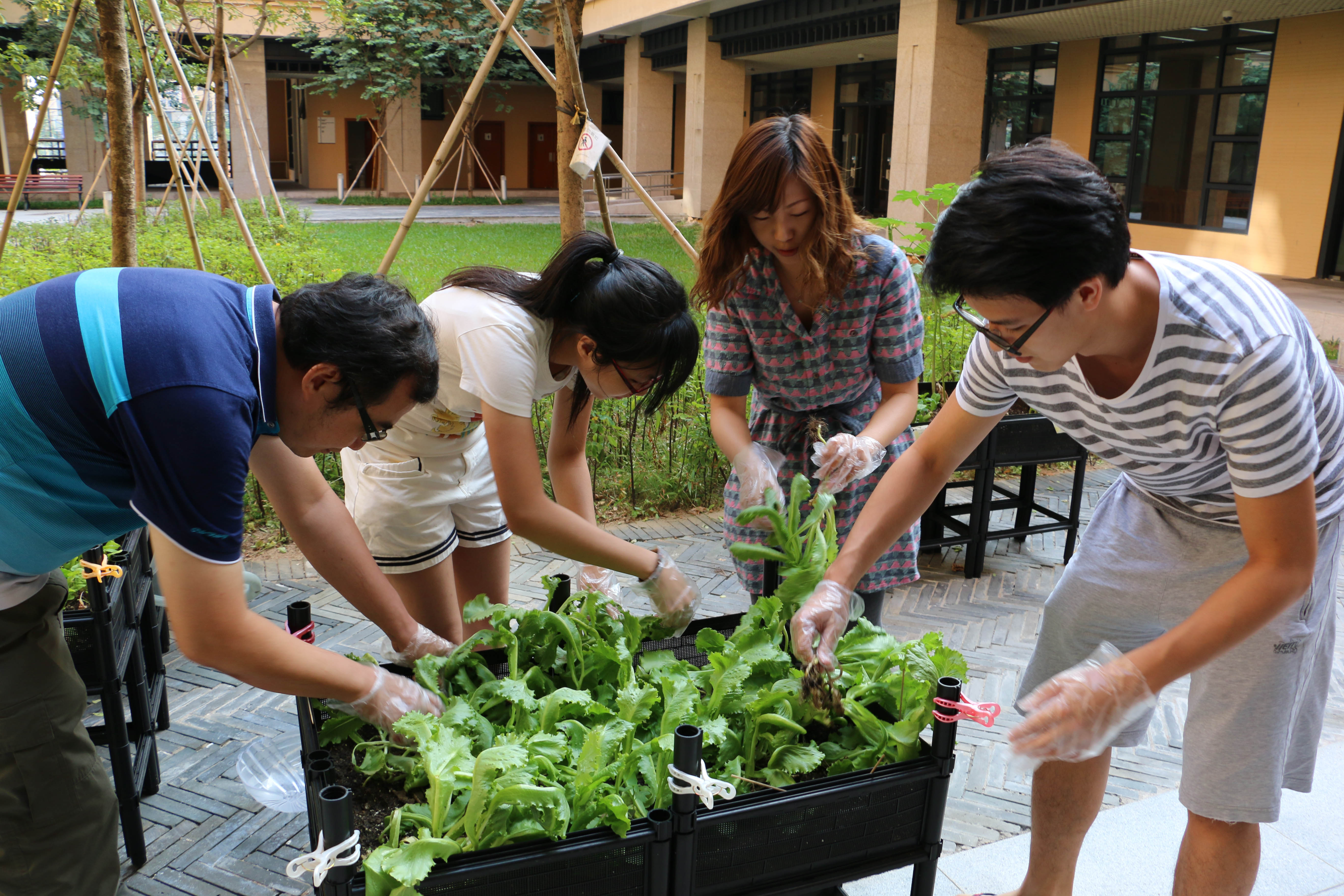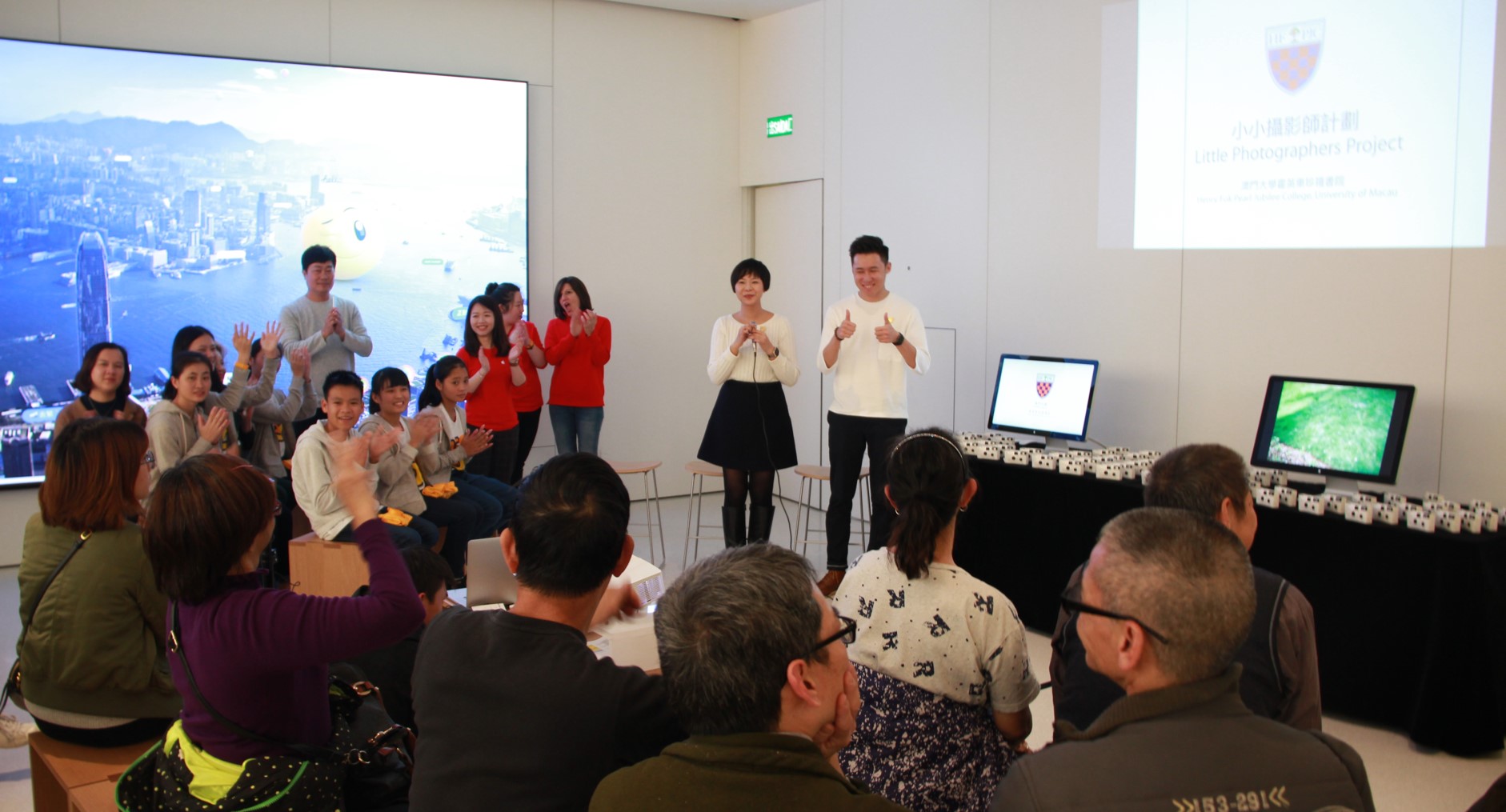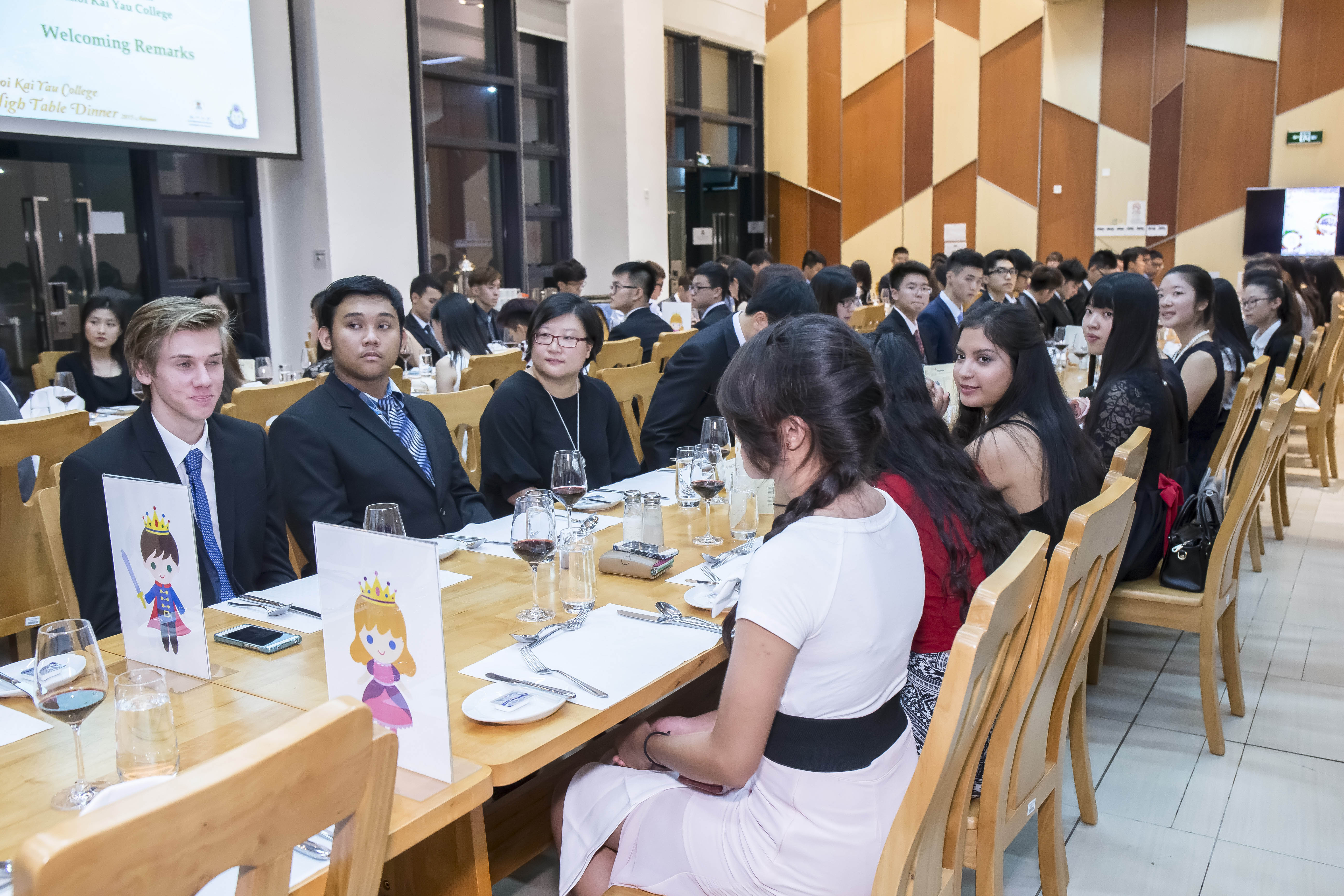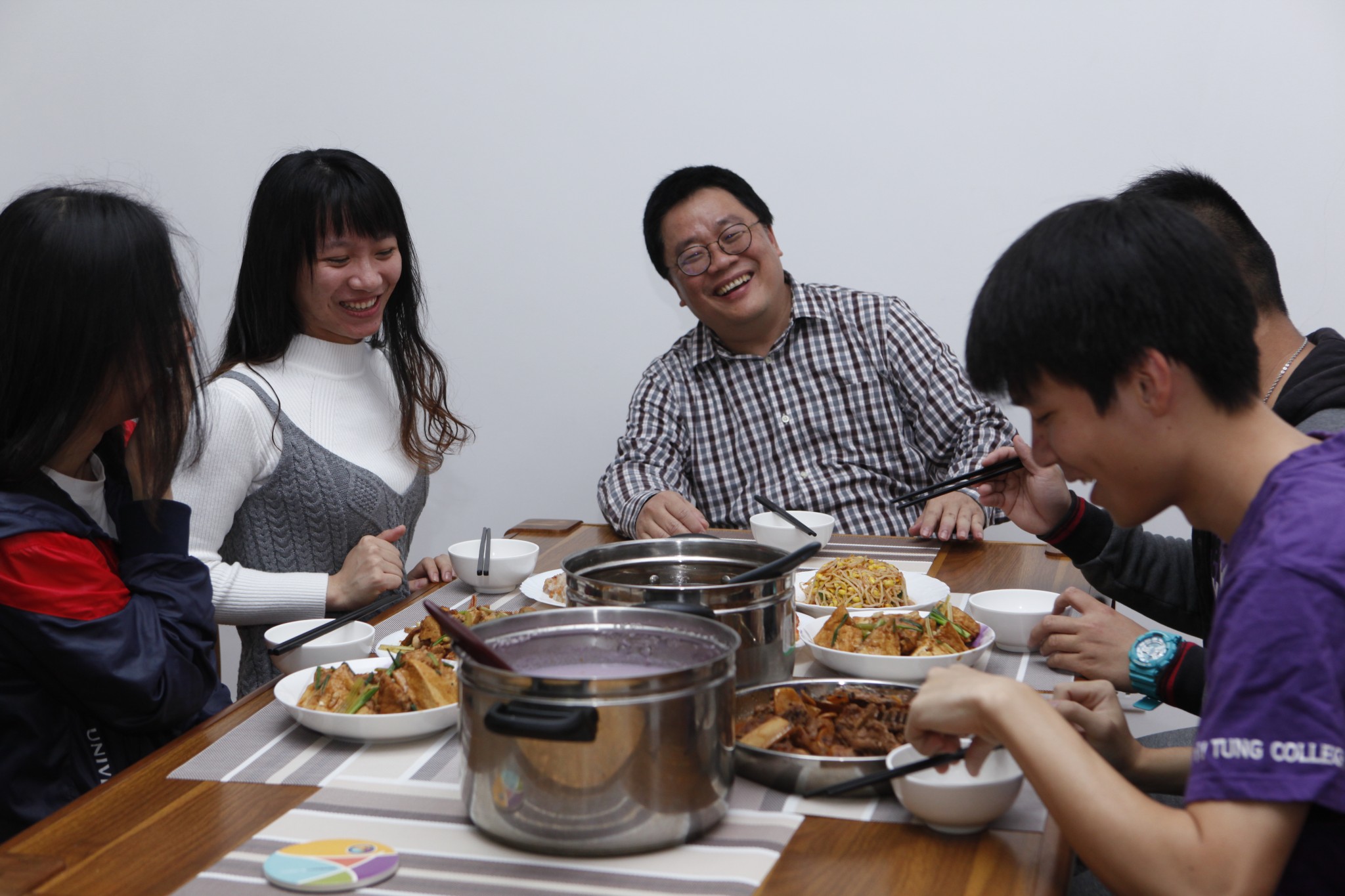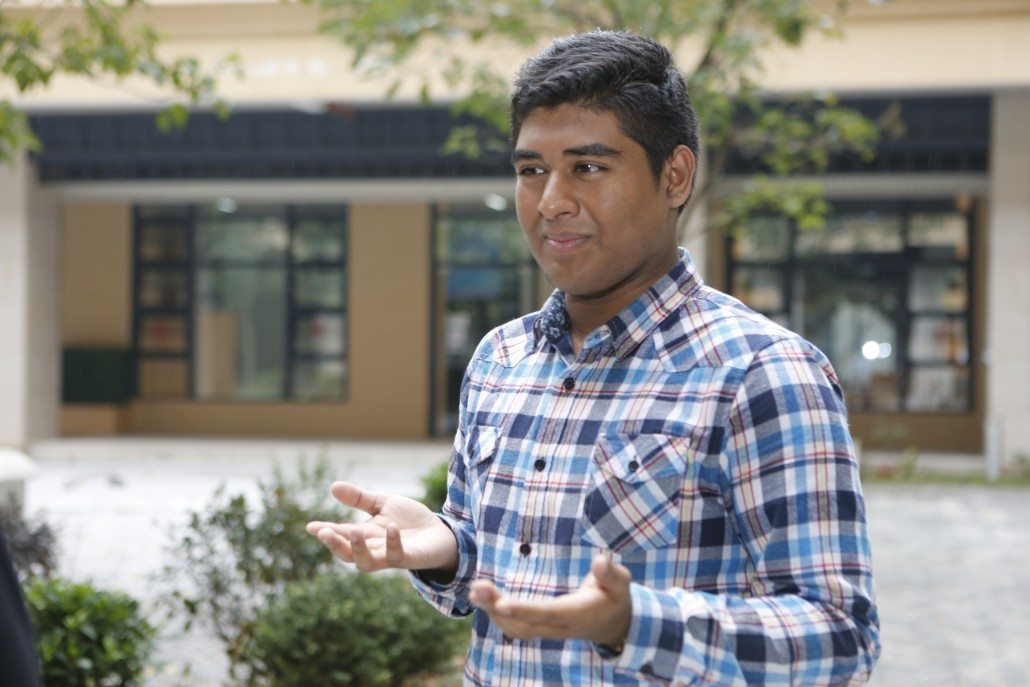Universities around the world are actively seeking to enhance undergraduate education. Establishing a residential college (RC) system is considered an effective way to achieve that goal. It is against this background that in the 2014/2015 academic year the University of Macau (UM) founded eight residential colleges, becoming the first university in Asia to have a complete and the largest RC system. The RC system and the improved facilities combine to allow the university to provide a multifaceted education to help students achieve well-rounded development and meet the challenges of the 21st century.
Liberal Arts Education
Liberal arts education is not focused on teaching knowledge specific to a single discipline. Rather, it starts with values education that encourages students to care about people and events in their lives, and to contemplate how to use their knowledge, talents, and skills to improve the living environment, so as to change themselves and society for the better. Unlike the discipline-specific education offered by the various faculties, departments, and institutes, liberal arts education is not confined to any one discipline or area of expertise. It mainly concerns learning ability and learning methods.
The RCs at UM provide an ideal platform for implementing liberal arts education. Each RC is home to more than 400 undergraduates from different backgrounds. Living and dining together provides ample opportunities for them to know and learn from one another. Under the guidance of the college master and college fellows, students are able to acquire practical knowledge and develop a wide range of skills. To help students become self-driven learners, each RC has designed unique programmes and activities to ensure that students make the most of the resources in their RCs to develop skills based on their strengths and interests.
Making Lifelong Friends
As is noted in the book The Great Learning, ‘Those who study alone without discussing their learning with their friends will never be able to broaden their horizons and will possess only limited knowledge.’ Knowing that creating opportunities for RC members to develop caring and mutually beneficial friendships with one another will enrich their lives, each floor has established a Floor Committee with assistance from the Floor Leader, to promote communication among students living on the same floor. Each RC also has a House Association to encourage students’ participation in college activities, which are designed to help them discover their interests and develop interpersonal skills and team spirit.
Shuvoraj from Bangladesh is a member of Choi Kai Yau College. He thinks that living in the RC provides many opportunities to make new friends. ‘When I first came here, I met a lot of students who were warm and helped me get through many difficulties,’ says Shuvoraj. ‘They tried their best to help me adjust to the life in Macao. We have become very good friends.’ Ke Qi, a residential tutor from Chao Kuang Pio College, says that she has made many friends with students from Portuguese-speaking countries in the RC, with whom she can hang out on weekends. ‘I created a “Portuguese floor” in my RC. On this floor, all students need to talk to each other in Portuguese,’ says Ke. ‘I have also organised Portuguese language classes and gatherings. These activities allow us to improve our language skills and make new friends at the same time.’
Dr Vivian Jiang, acting associate master of the Henry Fok Pearl Jubilee College (HFPJC), says that many freshmen worry about adjusting to the life in the RCs. But after living in the RC for one semester, many students would come to her and tell her about their mothers’ complaint that they spent too little time at home, because there are too many activities in the RC to join and too many friends to hang out with. Dr Jiang says that students can find a good community, good instructors, good activities, and good companions in the RC. ‘I have been working in the RC for five years, and I have seen many cases where students met like-minded people or even found their life partners,’ says Jiang. ‘If students are willing to open their heart, they will be able to make lifelong friends in the RC.’
Organising Activities and Serving the Community
The RCs attach great importance to developing students’ leadership skills, and encourage students to discover their interests and strengths and assist others to make continuous improvement. There are many student organisations in the RCs for students to choose from. They can join these organisations as either leaders or members to help plan and promote activities and workshops within the RCs. In order to create opportunities for students to put their knowledge into practice, the RCs frequently organise various activities, including social, cultural, athletic, and recreational events; workshops on further education and career planning; and activities revolving around current affairs. Organising events by themselves, and assisting the RCs with event organisation, promotion, and execution, allow students to gain practical experience and develop organisational and leadership skills.
Earlier, members of Lui Che Woo College organsed a volunteer long distance teaching activity to help students from a remote area in Sichuan province. ‘Just because they were born in a remote village, these children are robbed of the opportunity to receive normal education like children from other places. This is not right, and makes me want to do something to help them,’ says Fu Jia, a student from the college. Fu believes that devoting some personal time and energy to give disadvantaged children a chance to receive education is a worthy cause.
Some time ago, a group of faculty members and students from the HFPJC participated in a volunteer teaching trip to Hainan province. Through the Little Photographer Project, a new volunteer teaching programme, they provided disposable cameras and basic photography training for 33 children in Si Yuan Experimental School so they could record their everyday lives. Later, UM members contacted the Apple Store in Macao and persuaded Apple to exhibit the works of the students in their store. Six student photographers who participated in the programme also attended the exhibition and discussed their works.
Liberal arts education helps students acquire knowledge in a wide range of fields. Acquiring knowledge per se, however, is not the ultimate purpose. The ultimate purpose is to use the knowledge for the betterment of society. To this end, the RCs make participation in community services an important part of the students’ learning experience, hoping that through providing community services, students will have a better understanding of the needs of the public and use their knowledge to help improve the lives of those in need.
Learning Outside the Classroom
The RC is also a place where students broaden their horizons. At one of the High Table Dinners organised by Moon Chun Memorial College, Tomas Griffiths, an opera singer from Australia who has performed the title role in Phantom of the Opera, gave a singing performance to members of the college. Other music styles that were performed on the same evening included English pastoral, West End musical, and 20th century French light music. Guests at that special dinner came from different parts of the world, including Portugal, France, Australia, the United Kingdom, and the United States. The opera performance was followed by a concert given by a faculty trio from Stephen F Austin State University Texas.
The HFPJC has established a Healthy Living Team. Led by Dr Natalie Wong, a resident fellow of the college, members of the team created their own brand, selling environmentally-friendly natural products such as natural lip balms and natural mosquito repellent. Joining the team not only taught the students production and marketing skills but also increased their environmental awareness and introduced them to the benefits of a low-carbon lifestyle. In addition, the HFPJC has received visits from students from Thailand and Australia. It also invites Olympic champions and senior business executives to give talks, and arranges visits to different schools and organisations to help students see more of the world and gain practical experience outside the classroom.
Second Home to Students
Each RC is like a big family. Known affectionately as ‘daddy’ among his students, William Lee, associate master of Cheng Yu Tung College, enjoys cooking and always cooks late night snacks for students studying for the final exams. ‘It is very tiring to cook for so many people, but I also feel very happy,’ he says. ‘During the final week, students usually study late into the night. After finishing the late night snacks, they would return to their bedrooms and continue working for the exams. I think home-cooked food can make our college feel more like a home.’ Despite a busy work schedule, Lee likes to cook during his free time and often invites students over for dinner.
‘The RC is a place where college members develop deep friendships with one another,’ says HFPJC member Sheeta Su, who joined the House Association in her sophomore year. The House Association is dedicated to serving college members in various ways, such as organising new student orientations, talent shows, and leadership camps. ‘The process of serving other college members makes me feel that our college is really like one big, warm family,’ says Su. ‘We would get together in the dining hall to eat and talk, or watch movies together in the Learning Commons. If someone needs help, others are always happy to give a hand. If members of a university team or the Student Union have a match or an event, we would show up to cheer for them.’
As long as you are willing to take the first step to integrate into the life in the RC, you will be able to benefit from the community and peer education at UM more than you expect. The incredible experience will become an unforgettable memory that you will cherish for the rest of your life.
Source: Communications Office
UM Website:www.umac.mo

